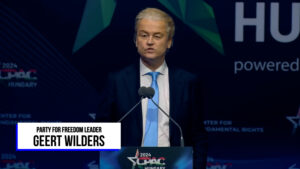INTRODUCTION
In the realm of global politics, a notable trend has been the expansion of conservative movements beyond their traditional borders. One striking example of this phenomenon is the Conservative Political Action Conference (CPAC), originally an American institution, now making waves in the heart of Europe, particularly in Hungary.
Hungary, under the leadership of Prime Minister Viktor Orban, has emerged as a central figure in this transatlantic alliance of right-wing forces. Orban’s alignment with CPAC reflects a broader strategy of forging closer ties with like-minded politicians, including former US President Donald Trump. Their shared vision sees upcoming elections in both Europe and the US as opportunities to challenge what they perceive as the encroachment of progressive ideals.

The CPAC event held in Budapest serves as a platform for Orban to rally support for his government’s conservative agenda amidst domestic and international pressures. It presents Hungary as a beacon of traditional values in an increasingly polarized world. The CPAC Hungary founder’s interview highlights the country’s commitment to upholding “God, homeland, and family” as foundational principles, resisting what they see as liberal mainstream values.
CPAC aims to accomplish several key objectives.
Beyond rhetoric, CPAC aims to accomplish several key objectives. Firstly, it serves as a platform for networking and coalition building among right-wing leaders and activists from both sides of the Atlantic. This networking facilitates the exchange of ideas, strategies, and resources, ultimately strengthening the broader conservative movement.
Secondly, CPAC is dedicated to promoting conservative ideology, emphasizing principles such as national sovereignty, traditional values, and limited government. Through showcasing speakers and panel discussions that champion these ideals, CPAC seeks to galvanize support among its attendees and beyond.

Moreover, CPAC views elections as pivotal moments to advance conservative agendas. By mobilizing supporters and endorsing candidates who align with their values, CPAC aims to sway electoral outcomes in favour of right-wing forces, both in Hungary and abroad.
Lastly, CPAC serves as a platform to counteract what it perceives as the dominance of progressive narratives in mainstream discourse. By amplifying voices that challenge liberal ideologies and policies, CPAC seeks to shift the political landscape towards a more conservative direction.
However, CPAC’s expansion into Hungary and its alignment with Orban’s government is not without controversy. Critics argue that Hungary’s brand of conservatism, under Orban’s leadership, undermines democratic principles and erodes civil liberties. Concerns over the concentration of power, media censorship, and attacks on minority rights have drawn condemnation from international observers.

In conclusion, CPAC’s influence in Hungary underscores the interconnectedness of global politics and the rise of populist movements. While it aims to advance conservative agendas and counter progressive narratives, its partnership with Hungary raises questions about the broader implications of transnational right-wing alliances on democratic governance and human rights standards. In navigating these challenges, the future trajectory of CPAC’s influence in Hungary and beyond remains uncertain.
Watch our Video here: Geert Wilders’ Message to Europe & Orban’s Hungary
